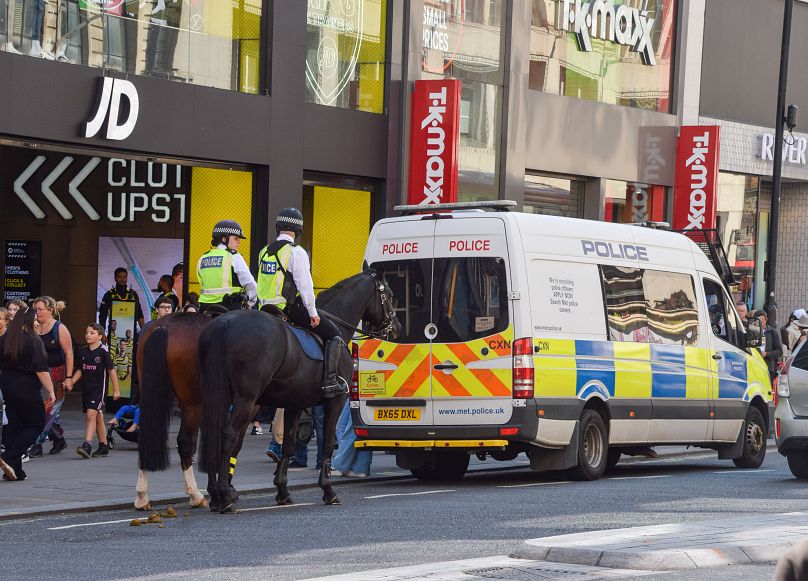The government-in-waiting say they'll tackle theft with a new law – but business across the country continue to struggle against shoplifters.
In the midst of a crippling cost of living crisis and a significant number of active criminal gangs, British businesses are facing a wave of thefts and attacks against their employees.
Describing the situation as unprecedented, they’re calling on the authorities for help – but they're not entirely hopeful of receiving much support.
As Pravin Kharel, a 28-year-old manager of a Sainsbury's supermarket in London, explains, shops and businesses have limited options for dealing with crime on their own.
“We don't have the right to chase them out of the store, so as soon as they leave, it's over," he said.
And even when staff do manage to apprehend the thieves, it doesn’t always end well.
“Last week, someone was trying to steal wine and we caught him, he tried to hit me with the bottle,” Kharel recalled.
According to the British Retail Federation (BRC), shoplifting is up 27% this year across ten of the UK’s biggest cities.
The phenomenon isn't limited to the UK. It has also been seen in France, where the figure increased by almost 15% last year; the United States has also seen a substantial rise.
But British business owners have had enough.
Nearly 90 heads of major businesses in the UK retail sector, including the likes of supermarket giant Tesco, Boots pharmacies and WHSmith bookstores, last week wrote to the government demanding action against criminals who “rob stores”.
According to the Convenience Stores Association (ACS), the most frequently stolen items are "meat, alcohol and confectionery, high-value items that can be resold by those with an addiction problem... or by organised crime groups".
They also acknowledge that the cost of living crisis too has driven up theft by people who are experiencing financial difficulties.
Inflation in the United Kingdom remains the highest in the G7, coming in at 6.7% in August. And while it has started to decline in recent months, the surge in food prices has been sharp, causing millions to worry about how they’ll put their next meal on the table.
As a result, the effort to stop shoplifting is becoming more visible. In supermarkets and convenience stores, consumers have become accustomed to seeing anti-theft stickers on basic food products, particularly meat.
The Co-op supermarket chain alone has spoken of a surge in "theft, crime and antisocial behaviour" of more than a third in one year.
Claiming they see almost 1,000 incidents per day, the company warns that the prevalence of theft could lead to some communities becoming “empty of convenience stores”.
In drugstores, sellers increasingly no longer place makeup on the shelves because of frequent theft.
This summer, hundreds of people gathered in the middle of the afternoon outside sports clothing chain JD Sports on Oxford Street – the busiest shopping street in Europe – in response to messages on Snapchat and TikTok.
Several stores were temporarily barricaded and clashes took place with the police, who arrested nine people.
That level of security is rare, however, and many smaller and less central shops are effectively on their own.
That could be set to change with an expected change of government after an election to be held at some point next year.
The shadow home secretary, Yvette Cooper, raised the issue at the Labour Party's conference earlier this week, assuring that under the party's plans, all shoplifting crimes, no matter how small, would have to be investigated by police.
She explained that Labour would scrap a 2014 law which currently means that people charged with the theft of goods below £200 (or €232) don’t have to attend court and often escape with a small fine.
Cooper claims that the rule means thefts under that amount are not investigated even if they may have been committed by organised crime gangs “coming back time and again”.
Labour say that the policy has effectively decriminalised thefts below that amount.
That’s despite figures which show that police fail to attend more than two-thirds of serious retail crimes, even though shoplifting costs businesses almost £1 billion (or €1.16bn) a year.
Cooper also pledged to introduce a new offence of assaulting a shop worker, thus putting retail staff on a par with police, fire, ambulance and health workers.
If convicted, any such attacker would face up to two years in jail – a move the current government has long shied away from.












